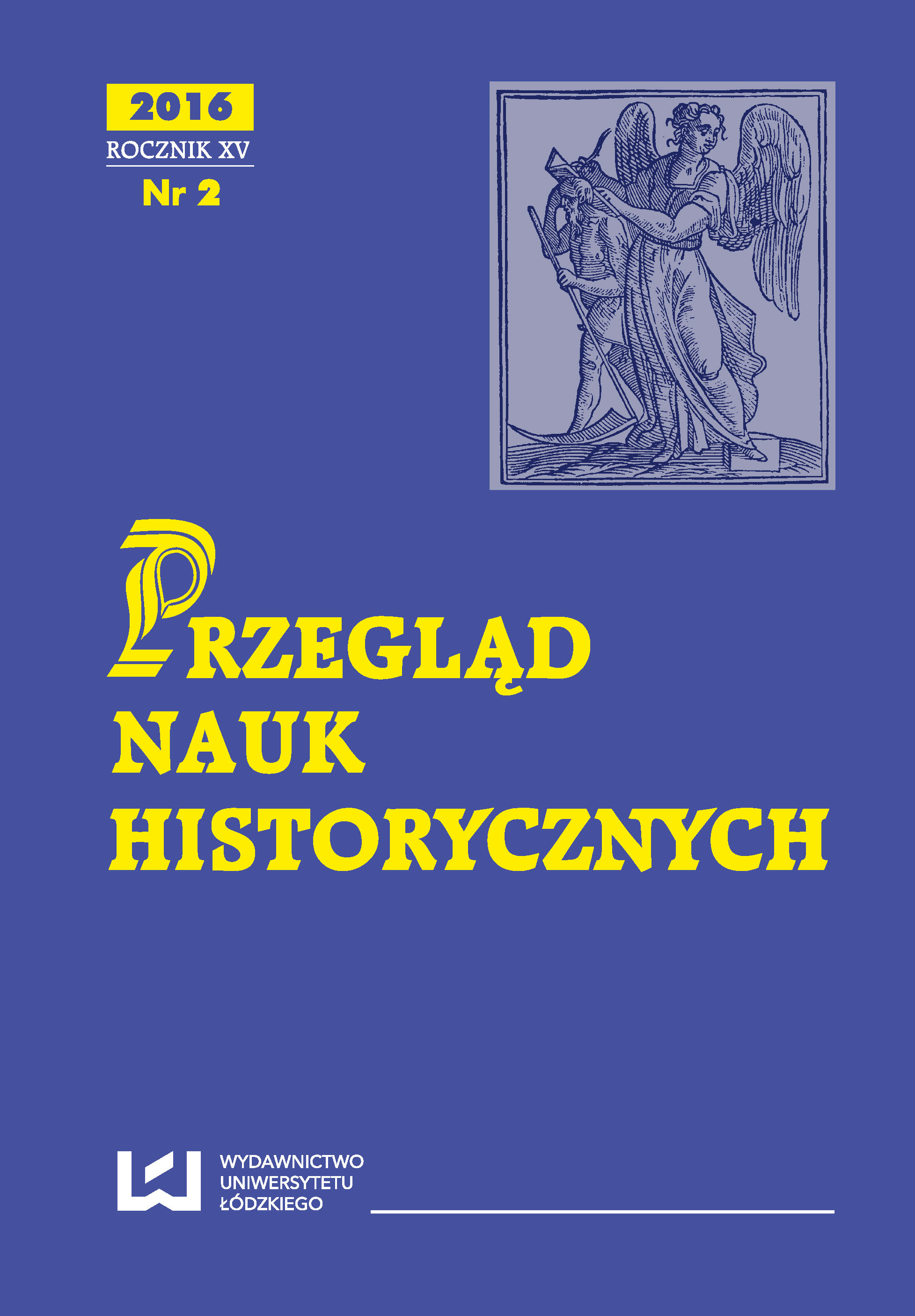Konwersja Konstantyna Wielkiego na chrześcijaństwo w świetle jego własnego świadectwa – kilka uwag
The conversion of Constantine the Great to Christianity in the light of his own testimony – some comments
Author(s): Sławomir BralewskiSubject(s): Ancient World
Published by: Wydawnictwo Uniwersytetu Łódzkiego
Keywords: Constantine the Grate; conversion of Constantine; Constantine’s vision
Summary/Abstract: Among the views of researchers who pronounced their opinion on the issue of Constantine’s conversion to Christianity, we have a variety of positions, which range from its total negation and attribution to the emperor mere calculation, sheer hypocrisy and instrumental treatment of religion, through discerning in his attitude a form of religious syncretism, to full recognition of the reality of his conversion. It seems that nowadays the vast majority of historians do not doubt the sincerity of Constantine’s renouncement of paganism, while differences in their opinions primarily concern the moment, when it took place. Many scholars also underscore the importance of the vision Constantine had, which, according to Lactantius and Eusebius of Caesarea, played a crucial role in the conversion of the ruler. The vision itself, however, is still controversial as a historical fact. Some see it as a supernatural phenomenon, while others either explain it as a natural one or completely depreciate its importance. Needless to say that neither party has been able to prove their case so far. On the other hand, it is irrefutable that Constantine himself, in his surviving letters and speeches, tended to put down his victories to the divine assistance of Christ, which, of course, one can interpret as an essential manifestation of his conversion to Christianity. Some scholars maintain that Constantine adopted Christianity after the year 324. It is, however, hard to prove, because over this period he addressed the god he believed in as summus deus, i.e. in the same fashion as in the first half of his reign. For instance, it was exactly the term he used in his correspondence and speeches from the break-through year 313, in which he addressed the Christian God. / Konstantyn w swoim głębokim przekonaniu został wybrany przez Boga Najwyższego, który za jego pośrednictwem dokonał przełomu w walce ze złem. To ów Bóg stał się jego boskim patronem, o czym cesarz pisał w swych listach już od roku 313. Zachowane cesarskie pisma, w których jest mowa o Bogu, na ogół kierowane były do chrześcijańskich biskupów i to ich Konstantyn powierzał opiece swego boskiego patrona, który w jego mocnym przeświadczeniu był Bogiem chrześcijan. Władca przypisywał Mu odnoszone przez siebie zwycięstwa militarne i spodziewał się, że oddając Mu cześć, zapewni cesarstwu pomyślność. W zamian, w ramach wdzięczności roztaczał opiekę nad Kościołem, wznosząc świątynie i zabiegając o jedność Jego wyznawców w kulcie. Konstantyn, wypowiadając się o Bogu chrześcijan, używał, co zrozumiałe, znanych sobie epitetów właściwych kultom pogańskim, ale należących też do ogólnego skarbca terminologii religijnej. Odwołując się do pojęć i symboli właściwych światu pogańskiemu, ale przez chrześcijan interpretowanych jako chrześcijańskie, Konstantyn dokonywał rewolucji religijnej w sposób kontrolowany i łagodny, nie dopuszczając do zaognienia nastrojów społecznych. Niektórzy badacze sądzą, że Konstantyn stał się chrześcijaninem dopiero po roku 324, jednak w tym okresie wyznawanego przez siebie Boga obdarzał tymi samymi bądź bardzo podobnymi tytułami, co w pierwszej połowie swego panowania. Ponieważ jego zachowana korespondencja i mowy adresowane były często do duchownych chrześcijańskich, to i zawarte w nich odniesienia do Boga dotyczyły Boga chrześcijańskiego i to już od roku 313.
Journal: Przegląd Nauk Historycznych
- Issue Year: 15/2016
- Issue No: 2
- Page Range: 45-79
- Page Count: 35
- Language: Polish

